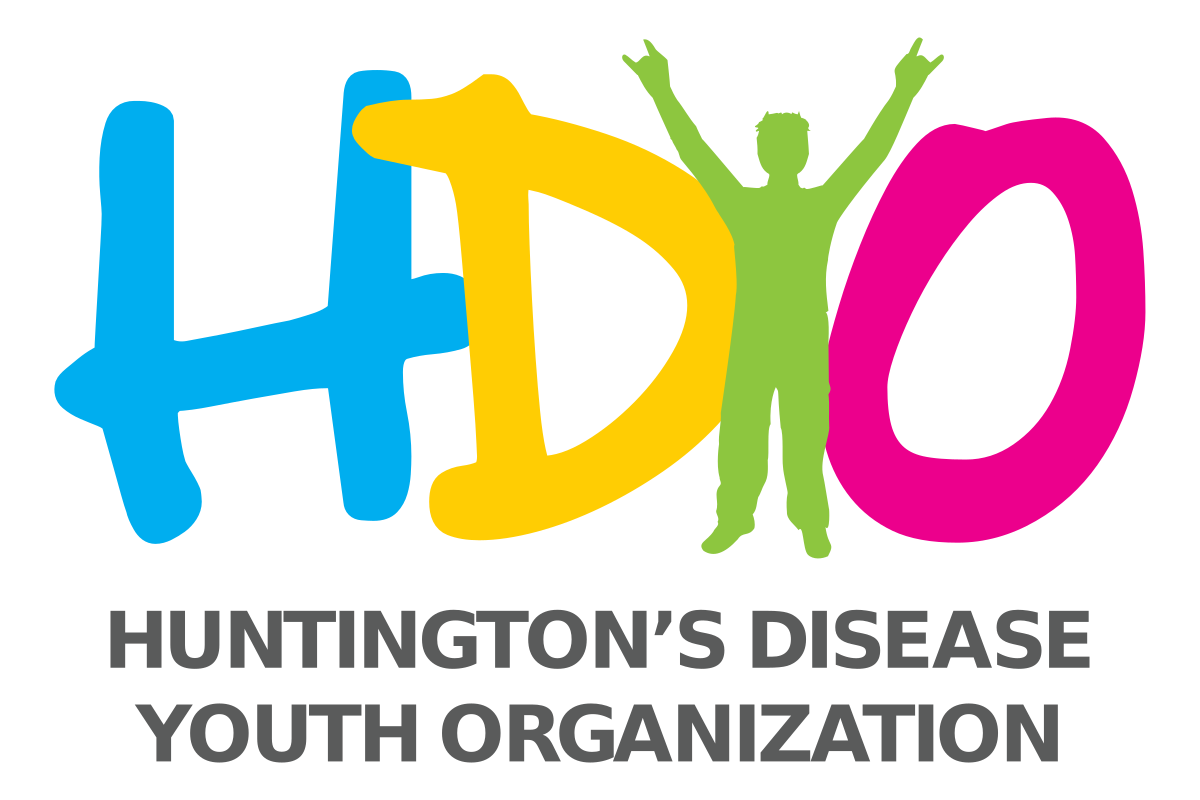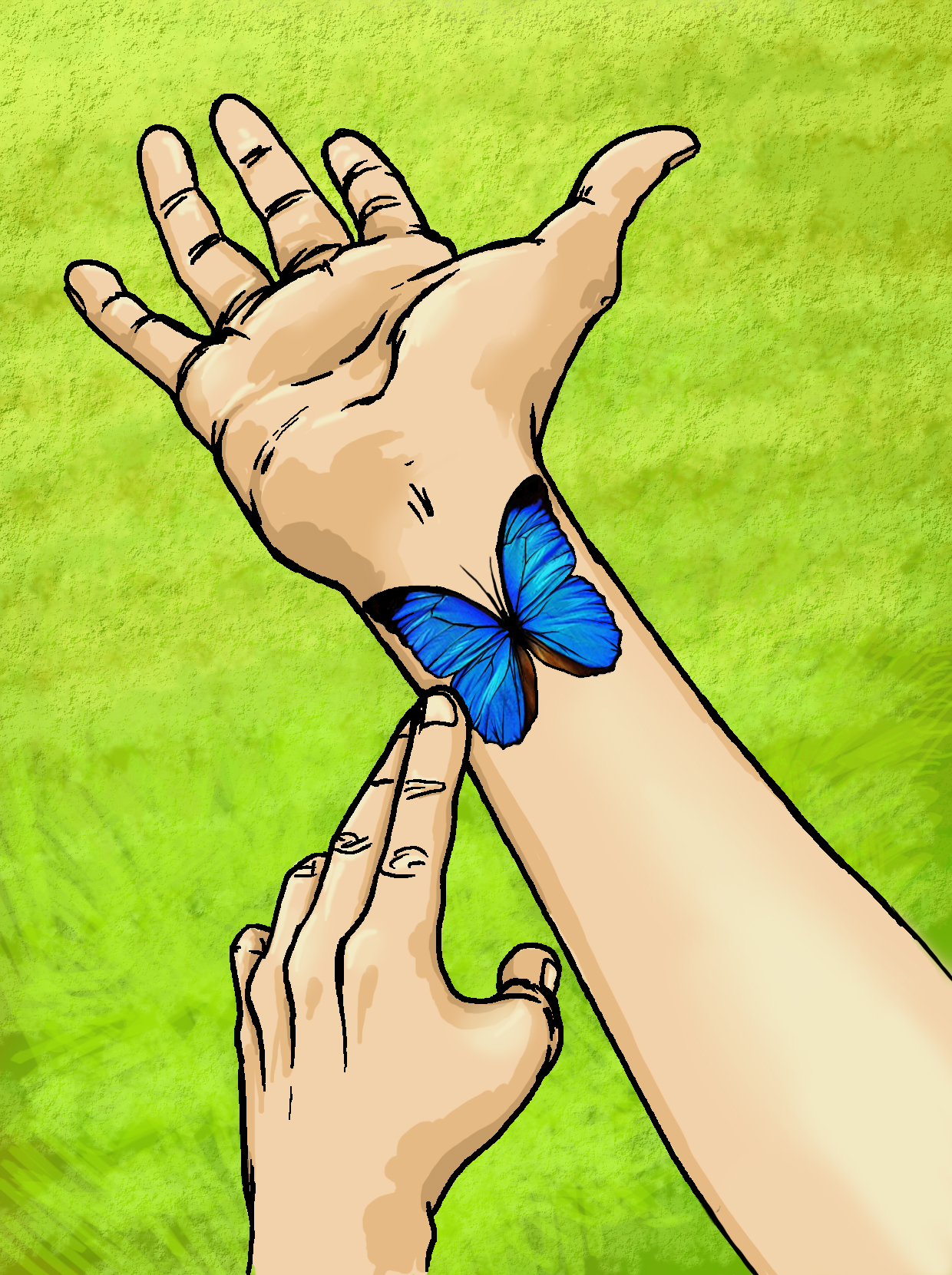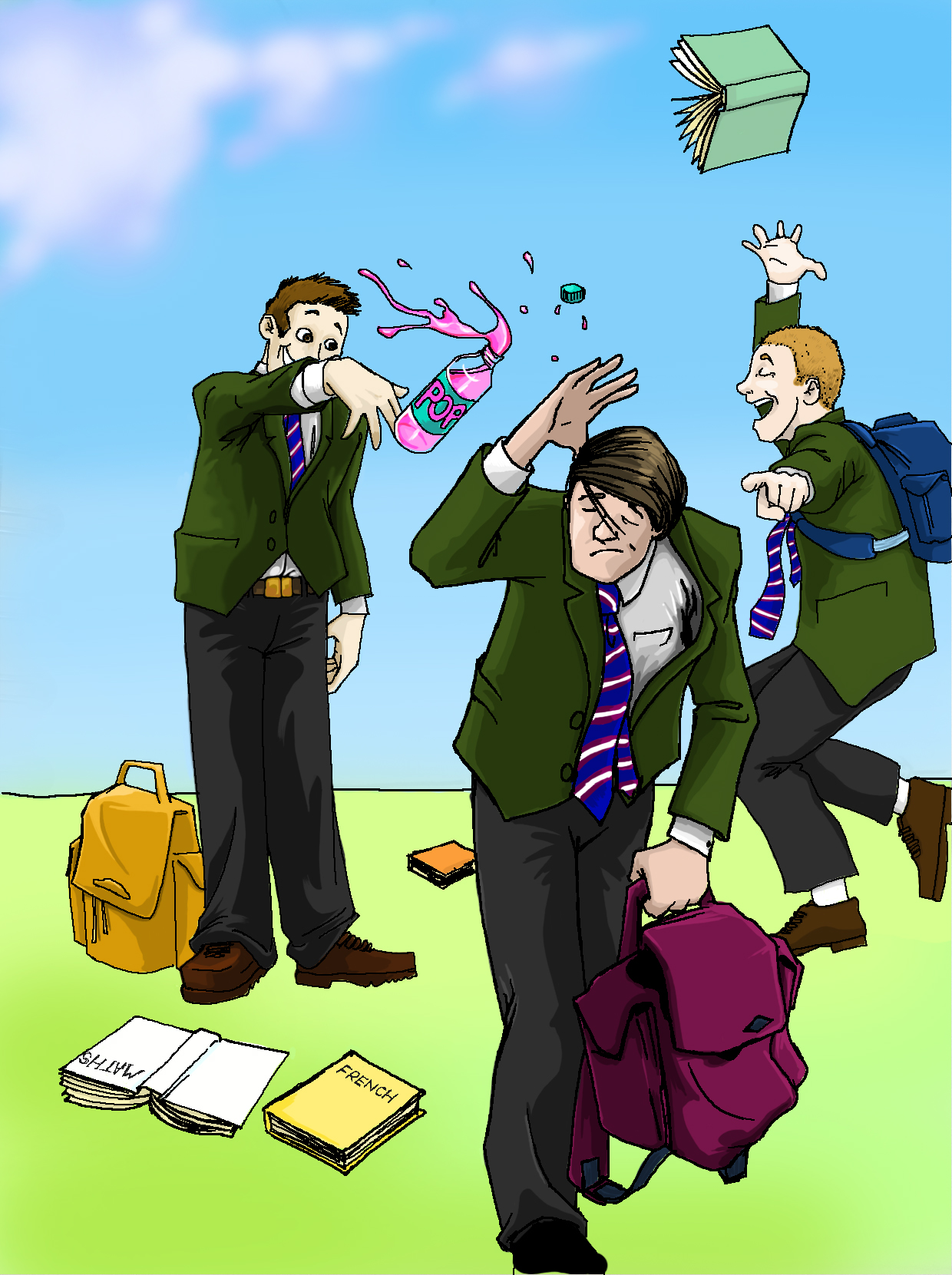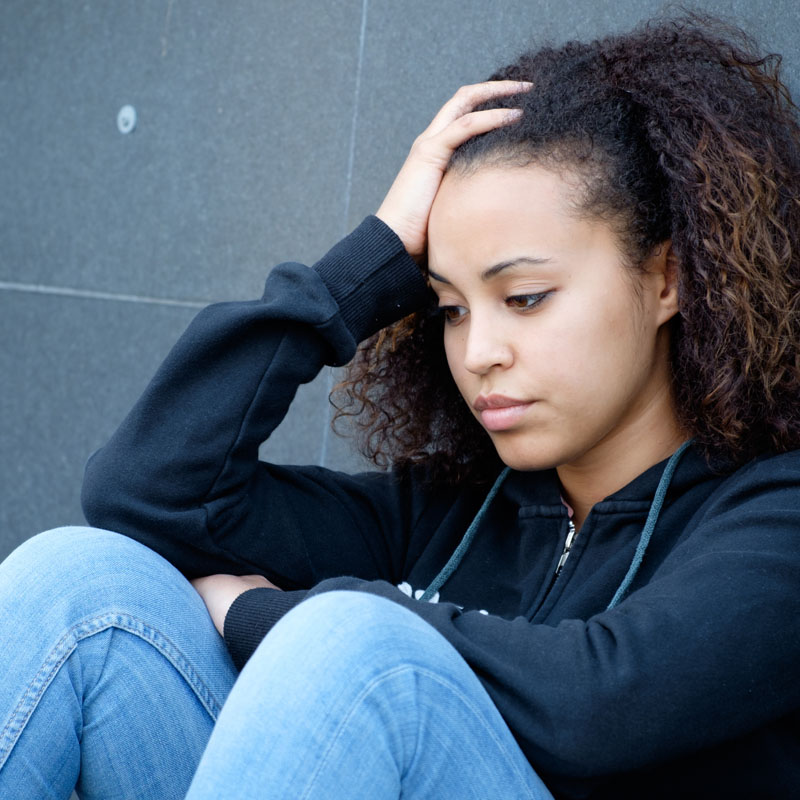Emotional Wellbeing
November 23, 2021

HDYO has more information about HD available for young people, parents and professionals on our site:
www.hdyo.org
Emotional Wellbeing is a term that can mean different things to different people, but for this section we mean it as how you feel emotionally and your self-esteem. Emotional wellbeing is really important because feeling well emotionally can help you cope, but when you are less well emotionally it can be harder to cope, especially when times are tough. As a young person, having HD impact your life can sometimes affect how you feel about yourself. There are many ways that HD can emotionally impact on a young person and this section will focus on the most common of those.
It is important to say that emotional wellbeing is often affected by the environment around an individual - meaning it is less about what you've done, and more about what support or challenges there are in your life. Having HD impacting on you as a young person can certainly lead to a lot of challenges to your emotional wellbeing. So if you feel you can't cope at the moment, it is not your fault you feel this way.
Below is a list of all the topics covered in this section. You can click on the one that you feel is most relevant and learn more about these experiences and feelings. Access to support is also highlighted in every topic so that you can reach out and get support with your specific concern. If at any time you feel distressed while reading this section, remember that there is always a support button on the left-hand side of your screen to contact HDYO, we will be here to listen.
Emotional Wellbeing Topics:
- Depression
- Anxiety and Stress
- Self-harm
- Eating disorders
- Drug & Alcohol abuse
- Suicidal thoughts
- Bullying
- Abuse
Depression
Sometimes life can seem really hard. Sometimes being impacted by HD can make everything seem even more difficult. This can cause people to feel sad and stop them enjoying life like they used to. Depression is often a hopeless feeling of sadness that someone has usually experienced for a long period of time such as weeks or months. Depression is something that affects people's lives and can be diagnosed by a doctor.
What causes depression?

Depression is often caused by something happening in your life to change the way you feel such as bereavement, stress, or with regards to HD it may be that a family member has recently been diagnosed with HD or their symptoms are progressing and this is having a negative impact on you. These changes in life can lead to changes in how someone feels emotionally and cause depression.
How do you know whether you feel sad or have depression?
- Symptoms for depression include:
- Persistent sadness, lasting two weeks or more
- Loss of interest in your favourite things
- Finding no fun or enjoyment in life
- Loss of self-confidence
- Feeling guilty, bad, unlikeable, or not good enough
- Feeling empty inside
- Feeling useless or unable to cope with life
- Feeling bored all the time
- Increased feelings of anxiety
- Can't see a future for yourself
- Thinking everything is pointless
- Thinking life is not worth living
- Changed eating pattern - loss of appetite and weight loss, or comfort eating
- Getting lower grades than usual at school, college, or university
- Not going to school/college/work, or becoming disruptive
Support with depression

Depression is very common and if you feel you are experiencing depression then it is really important to seek support. With support, people with depression can make a full recovery. If you are feeling depressed then the best thing to do is contact your doctor. The doctor may suggest taking antidepressants drugs or to seek counselling - both can be useful in overcoming depression. Antidepressants are usually not an answer to depression on their own. That is where the counselling is vital so that you can get to the cause of your depression and make any necessary changes to improve your mood.
Another important way to overcome depression is to talk about it. It can seem like the hardest thing to do, but talking to someone about how you feel, whether it's a friend, relative, parent, carer or trusted person means that you are starting to deal with your feelings. If you keep your feelings to yourself, you can start to feel lonely and as though you have to cope with everything on your own. Sarah, a young person impacted by HD who has experienced depression believes talking helped her a lot:
'I found out when I was 17 that my father had HD... At the time it seemed like such big life forming information that had a huge impact on my emotional wellbeing. I went through a period of manic depression from when I was 18-21. I didn't think I had anyone I could talk to and that I didn't want to be a burden on anyone especially my family when they had so much to cope with as it is. But turns out that it was the best medicine, I found a group of really good friends that where so supportive and had been through depression themselves. I think the biggest help that they gave me was that they listened and let me educate them on what HD was and how it affected my family. So even though they didn't personally have HD they were people I could turn to and tell them anything that was going on and not have that fear of being judged or misunderstood.' - Sarah
If you don't have anyone you feel that you can talk to, you can contact HDYO about depression at any time. We are here to listen.
The positive side of depression
Although depression is often viewed as having a negative impact on life, it is suggested that overcoming depression can lead to people feeling stronger and more resilient. The Greek philosopher Aristotle also thought depression to be of great value because of the insights it could bring. He believed that there's an increased empathy in people who have, or have had, depression because they become more attuned to other people's suffering. Sarah also feels there is a positive side to depression:
'If I had the chance to take back having gone through depression I never would. I learnt so much about myself and it played a big role in who I am today.' - Sarah
Remember that even if you are feeling hopeless at the moment, depression can be overcome, and the bad feelings will not stay with you forever.
Anxiety & Stress
Anxiety is an unpleasant feeling of fear and concern. Normally anxiety can be useful, helping us to avoid dangerous situations, making us alert and giving us the motivation to deal with problems. However, if the feelings become too strong or go on for too long, they can stop us from doing the things we want to, making our lives miserable. Stress is the feeling of being under too much mental or emotional pressure. Pressure turns into stress when people feel unable to cope.
Many young people may feel anxious or stressed in their lives, due to many things such as school, college, work, or things like HD causing pressure within the family. Whatever the cause of anxiety and stress, here are some common signs to look out for:
How do you know if you are anxious or stressed?
Psychological symptoms
- Anger
- Fear of madness
- Fear of impending death
- Feelings of being outside yourself
- Feeling cut off from reality
- Worried all the time
- Tiredness
- Irritability
- Poor memory
- Sleeping badly
- Inability to concentrate
Physical symptoms
- Abdominal discomfort
- Breathing heavily
- Diarrhoea
- Difficulty swallowing
- Dizziness
- Faintness
- Frequent urinating
- Headaches
- Indigestion
- Muscle tension and pains
- Racing heart
- Sweating
- Tightness or pain in chest
- Tingling finger tips
It is quite normal to feel anxious when you are facing something dangerous or difficult, but it is unusual to feel anxious all the time or to feel that anxiety is ruling your life. Extreme anxiety is usually comes in the form of phobias, panic attacks or obsessive compulsive disorder. If you feel you have some of the symptoms of anxiety or stress then there is support available for you.
Support
Firstly, there are things you can do yourself to increase your chances of beating anxiety or stress.
Helping yourself beat anxiety and stress
- Try to take a positive outlook on your anxiety, taking one day at a time. Don't be too hard on yourself. Learning to deal with your anxiety can be extremely difficult and may take some time. If possible, try to face the things or situations that make you anxious, and feel confident about being able to cope with your anxiety.
- It is important to find ways of motivating yourself, such as setting small and achievable goals. It is sometimes helpful to make a list of particular problems or difficult situations that you would like to overcome and attempt them step-by-step.
- Learn to relax by thinking about things that make you feel calm such as listening to music or reading. You could also use specific relaxation techniques such as meditation, yoga, or pre-recorded relaxation tapes. This may help you if you are having difficulty sleeping.
- Do some form of exercise on a regular basis. Physical exercise can trigger brain chemicals that will improve your mood. Feeling better about your body can make you feel more positive about yourself.
- Eat well - lots of fresh vegetables and fruit will increase body energy. Also, try to avoid drinking too much tea and coffee as caffeine can increase anxiety levels.
But there is also support out there for you. Your doctor is a good place to start, they can prescribe some medication which may help and they may also look to refer you to a counsellor for talking therapy. Again, like depression, drugs alone are likely not to be enough. The counselling will help find the root cause of any anxiety and work to address that. That is why a combination of drugs and counselling can be most effective. Talking is really important in overcoming any problem you have such as anxiety or stress. Talk with people you trust such as family, friends, a trusted adult, a counsellor or HDYO - we are here to listen. There is support out there for you and anxiety and stress can be overcome.
(Childline is a UK Service)
Self-harming
Self-harming is a term that describes when people purposely hurt themselves in some manner, most commonly but not limited to cutting themselves with a sharp item. Sometimes when life feels difficult and coping becomes tough, people may self-harm to feel like they have some control over the situation or to release difficult emotions.
There are lots of reasons why young people might self-harm - the need to hurt themselves usually comes from emotions that are very difficult for them to cope with. Young people might self-harm because it's a way of releasing tension or anger. It's a physical pain that they can deal with, rather than an emotional feeling that they find hard to cope with. It can also be a way of controlling something, especially if they feel that other parts of their life are out of control or they are trapped in a difficult situation. Self-harm can also be used as a form of self-punishment for something that a young person feels bad about.
'Physical pain is real, it is something you can deal with. You have the pain... it goes away, and then it is over. So for me self-harm was a way of letting all the emotional and physical harm come out - it was a way of releasing.' - Marthe
Many ways people self-harm
Self-harm can take many different forms. Cutting is the most common and well-known form of self-injury, but others can include: burning; scalding; stabbing; banging heads and other body parts against walls; hair-pulling; biting; breaking bones; jumping from heights or in front of vehicles; and swallowing or inserting objects.
Ways to overcome self-harm
Although self-harming can be seen as a coping technique by a self-harmer, it is not the best way to cope as it brings its own problems and can potentially cause serious damage to your health. So overcoming self-harm is important for a young person's safety and wellbeing, but self-harming can also become addictive and a bit of a habit. Distracting yourself from self-harming is seen as a good way to stop. By finding alternative things to do you may be able to reduce the urge to self-harm. Overcoming any sort of addiction is not easy, but these tips may help you find something that you can do instead of self-harming.
List of tips and distractions to stop self-harming

- Write feelings down rather than self-harm
- Cut up pieces of paper as a substitute for self-harm
- Pull elastic band tightly to feel pain similar to self-harm
- Put ice on wrists to feel a pain and numbness without cutting
- Draw red on your arm for the visual effect of self-harm
- Butterfly technique - draw a butterfly or another animal on the part of your body where you usually harm yourself and try not to harm it.
- Scream
- Cry
- Play games instead
- Read books
- Go out with friend
- Watch movies
- Use the internet
- Listen to music
- Exercise
- Make or eat food (or both)
- Have a bath
- Go for a walk
- Call someone
- Dance
- Start a new hobby
- Volunteer your time with an organisation near you
Maybe this list has given you some ideas of how you could try and overcome self-harming, or maybe you have thought of something else you could do. Either way distractions are a really useful way of trying to stop self-harming. But if you do self-harm - make sure you look after your cuts or wounds. Unclean cuts and wounds can lead to infection and cause even more harm. And if you a worried about a particular cut or wound then seek medical attention immediately - it is important you are safe.
Support for self-harming
Telling anyone about your self-harm is a massive and brave step, so confide in someone you feel comfortable with. Talking to a trained health professional such as your doctor, a counsellor or support organisation is a safe move because they should listen calmly and offer you supportive advice. It might also be easier to open up to someone you're not emotionally close to because you can relax and not worry about upsetting them. There's no reason for you to deal with things all on your own; if you're really worried about talking to someone face-to-face, you can call, email, or even text a professional support group anonymously.
When telling anyone about self-harm it is important to think about confidentiality. Sometimes when a young person says they are self-harming to a healthcare professional they then may have to get other professionals involved or contact the family depending on their confidentiality policy. Confidentiality varies a lot globally, so before you speak with any professional ask them what their confidentiality policy is and make sure you feel comfortable before talking about self-harm.
Making a conscious effort to stop self-harming is great progress and a brave step. But any addiction is difficult to overcome by yourself and while distractions may stop you self-harming on occasions, it likely won't solve the reason why you self-harm in the first place. So talking with those you trust, and those that can help you are really important steps to make. A doctor or counsellor are good starting points and HDYO is here to listen.
Eating Disorders
An eating disorder is an illness that stems from both emotional and psychological distress, and results in an obsessive relationship with food in terms of over- or under-eating. Having the ability to control the amount and type of food consumed makes sufferers believe that they are coping with or controlling their problems and offers them a way to block out painful feelings.
Different types of eating disorders
Anorexia: A psychological disorder in which sufferers have a distorted view of their own body shape and weight, leading them to deliberately starve themselves of food.
Bulimia: Bulimics fall into an abusive cycle of gorging on food until they are sick and get rid of all the food they have eaten. Many will also use laxatives to induce diarrhoea.
Compulsive eating: Again, this involves binge eating, but unlike bulimia, these people are unable to purge themselves.
EDNOS: Stands for 'eating disorder not otherwise specified' where sufferers have some, but not all of the diagnostic signs for anorexia or bulimia.
What causes people to develop eating disorders?
Eating disorders, like self-harm, almost always stem from you not being happy, feeling depressed, or feeling like your life is out of control. Maybe something is happening at home, or you're feeling really stressed about exams, grieving for someone who has died or the impact of HD on your life is increasing. What's important to remember about eating disorders is that they're all to do with your head, although you're focusing on your body.
In the video, Marthe talks about how her eating disorder started because she wanted to take control of how HD was impacting on her life.
How do you know if you have an eating disorder?
Here are some questions to ask yourself to examine how you feel about life and food.
- How do you feel in yourself at the moment? Are you upset? Feeling pressured?
- Have your eating habits changed recently?
- Has your thinking around food changed?
- Have you become preoccupied with food and counting calories?
- Are you avoiding certain situations that involve food, like going out for meals with friends?
- Have you starting skipping meals, binging on food, or throwing up after eating?
If you answered 'yes' to a lot of these questions it doesn't automatically mean you have an eating disorder. So don't panic. But it may be a sign you need to explore what's going on in your head.
People can flirt with disordered eating. Often they'll get bored of it, and it doesn't push them over the edge. But when food starts interfering with your life and becomes the sole focus of your thinking, then it's worth seeking help.
Overcoming eating disorders
It's difficult to 'cure' disordered eating by yourself, but it is recommended that if you've cut out a food group, or are regularly missing a meal, you start by trying to set obtainable goals. For instance, try, 'I'm going to eat carbs three times a week' or 'I'm going to make sure I eat three meals a day, five days a week'. If you're able to achieve these goals, then you may be able to make some good progress in overcoming the eating disorder. However, it's likely you'll need support alongside this, so don't be afraid to talk to someone or go to your doctor.
Support for eating disorders
Eating disorders can be overcome. Recovery is possible even after years of illness. But no one can force you to get help. First, you have to accept that you have an eating disorder. It might help to talk to someone you trust - a family member, friend or trusted adult. HDYO is also here to listen if you would like to discuss eating disorders. Talking is a brave step to make, but it can help a lot.
Your doctor should be able to help you with eating disorders and they may refer you to a dietician or a counsellor. If they don't, try asking to be referred to a dietician or counsellor because treatments along with counselling can be a powerful way to overcome eating disorders. The treatment tends to be a combination of dietary control along with counselling to help deal with underlying problems. It is always important to find the underlying issue causing an eating disorder in order to stop it completely and improve your emotional wellbeing.
Drug & Alcohol abuse
Lots of people drink alcohol and take drugs (remember that medicines are drugs too), and in sensible amounts it's usually fine, but in high amounts these substances can be very dangerous. Sometimes people may take drugs or alcohol to feel better, or forget about things when life seems hard and coping becomes difficult. But drinking too much or taking too many drugs can cause lots of problems and lasting damage to your body, it can also be very addictive and hard to overcome without support.
Why do people start abusing drugs and alcohol?
There are many reasons why people might take drugs or alcohol. Some of the reason that people give include:
- To look grown up or good in front of people
- They like the thought of doing something dangerous
- Their friends are doing it
- Wanting to escape feeling of sadness or hopelessness
- To escape problems at home or school
- They enjoy the feelings they get from taking drugs or drinking
When does drinking alcohol or taking drugs become a problem?
If someone is drinking too much or taking too many drugs and they are not able to stop they may have a problem. Substances such as heroin, benzodiazepines (BZDs) and alcohol can cause your body to develop a physical addiction. If you get aches, tremors and sweating when your body is not getting these drugs, you may be going through withdrawal. You should get in touch with your local drug or alcohol treatment service for help, support and advice.
Although other drugs, such as cannabis or cocaine, may not be physically addictive they can lead to 'psychological addiction' - when you feel unable to function without using them or experience feelings of withdrawal when you stop.
Beyond physical and psychological effects it's also important to consider the potential financial and legal problems associated with drug use. Maintaining an alcohol or drug habit, whether legal or illegal, can be costly and lead to problems with debt. Being caught in possession or testing positive for the use of illicit substances can have legal implications. The drug use may also impact on your relationships, social, school, or work activities.
What damage can drug and alcohol abuse cause to you?

Drinking alcohol and taking drugs affects the way you think and feel. These are some of the ways it can affect you:
- It slows down your body and makes accidents more likely to happen
- You might become violent when you are drunk
- Drinking or taking a lot of drugs in one go can be very dangerous
- People may pass out, choke on their own sick, overdose and even die
- Every weekend hospitals pump the stomachs of young people who have drunk too much
- Being drunk or drugged makes you vulnerable and someone could take advantage of you more easily
- Regular, heavy use can lead to alcoholism and drug addictions. People then feel they have to drink or take drugs all the time to avoid feeling ill
- Regular, heavy use can damage your liver, heart, stomach and brain
- Damage to physical and mental health
- Accidents while you are not in control of what you are doing
- Not knowing what the drug will do to you
Support
If you are concerned about your drug or alcohol usage then the first point of call needs to be your doctor. Doctors have the best access to the services and treatment you need to get better. You may be panicking about whether you can trust your doctor to keep your problem confidential, but most GPs have a confidentiality policy. Find out what it is, so you can decide whether you feel comfortable seeking advice with them or not. If you're really nervous, you can ask your surgery to refer you to another doctor.
Tough as it is to see a doctor and tell them 'I think I have a problem', talking to someone is the most important thing you can do. This is not a problem that will go away. Doctors aren't going to judge you, they are there to help you.
If you really feel you can't face your doctor, there may be some charities in your area that can help you. There may also be local advice centres and group meetings who can provide support. But to receive medical help for your addiction, you will need to see a health professional and get a referral.
If your body is physically dependent on a substance, then you need to detox it from your system. This will be medically assisted so you come off your substance in a gradual and safe way. Group therapy will follow, as well as individual discussions looking at the reasons behind your addiction.
If you take a substance at hazardous levels, but your body is not physically dependent on it, you will probably be referred to a psychologist, community health nurse, or Cognitive Behaviour Therapist. They can help you look at ways to change your pattern of consumption. There are usually underlying psychological reasons for your habit that can be addressed.
For anyone who feels concerned about theirs or someone else's drug or alcohol usage then support is out there. Talking with those that can help such as the doctor is the first step on an often long road to recovery. But people with drug or alcohol addictions can regain control of their lives, face their difficulties and overcome their addiction with the right support and determination. If you want to talk about drug or alcohol abuse you can always contact HDYO for further support - we are here to listen.
Suicidal thoughts
Experiencing depression, anxiety and stress may eventually lead to suicidal thoughts. Suicidal thoughts can be terrifying and feel very isolating. But feeling like you want to harm yourself is more common than most people think. The important thing to realise is that you're not alone and that immediate help is available.
If you are feeling suicidal it is important you get support immediately. You should contact your doctor who may be able to diagnose a temporary and treatable issue that's causing your distress. For example, feelings of despair, sadness, low self-esteem or panic are indicators of conditions like anxiety and depression. These symptoms can be relieved by medication or talking therapy.
If you really feel your thoughts have reached crisis level then going to the Accident and Emergency department of your local hospital might be the safest option. There you can see someone who will be able to assess your needs and help your find the necessary support.
If you aren't in a crisis right now then perhaps you would benefit from contacting HDYO and we would be available to listen and direct you to further support. There may also be organisations in your region that can provide a place to talk supportively about your suicidal feelings. The most important thing is that you receive support.
Bullying

Bullying usually involves a person or group exploiting the fact that they feel more powerful than another. This can be acted out through physical or emotional harm - or both. Bullying takes on many forms, such as: leaving people out of a social circle; racist and homophobic abuse; being singled out as 'different'; sexual abuse and discrimination; being forced to hand over money and possessions; physical and violent attacks; or being taunted about your family situation.
Bullying and HD
Sometimes young people impacted by HD are bullied because someone in their family or who they know has HD and is seen as being 'different'.
'I was bullied in school because my dad had HD. Bullying made my life and school really difficult for me and caused so much extra stress on top of what was already happening at home with my family. It got worse and worse and I never told anybody what was happening because I was scared, so it just carried on happening for years. Looking back, I wish I had told someone and tried to get it stopped.' - David
Wherever bullying happens and for whatever reason it happens, bullying is wrong and support is available. If the bullying you are experiencing is happening within school, many schools now have anti-bullying policies which means they must act when bullying is happening. It can be really useful to ask a teacher or a trusted adult at the school if they have an anti-bullying policy and what they can do to stop bullying if it is happening. Also, some schools may have a school counsellor available who you could talk to about the bullying. They will listen to you and then may be able to help stop the bullying from happening.
Bullying is wrong and it is not your fault. There is plenty of support to stop bullying if you can make that first brave step and tell someone about it - remember HDYO is here to listen.
Beat bullying
Ways to help overcome bullying.
- Body language: Bullies pick on easy targets, so poor posture and averted eye contact will attract unwanted attention. Stand proud with your shoulders back and your head up, and look people in the eye - you'll soon give out the message that you're not afraid.
- Safety in numbers: This is particularly important when bullying is taking place outside of a regular establishment. Work out your safest and most public routes home and try to stick with others at all times.
- Walk away: If you find yourself in a situation that is making you feel uncomfortable, calmly but quickly walk away. If you are near other people or a public place, head in that direction.
- Speak up: This is exactly the thing that bullies expect you not to do, so you are already regaining some control by speaking up. If the bullying is taking place in an established setting like a workplace or university, approach a colleague or tutor you are comfortable with - or try a student counsellor. It can be difficult to know who to turn to when bullying is happening outside the boundaries of regular establishments. Telling friends and family may help you feel more protected, but if they feel unable to solve the problem, contact the police.
- Explore your feelings: If there is no one you can tell, or you just don't feel ready to open up face-to-face, consider talking to HDYO about your experiences of bullying - we are here to listen and support you.
Abuse
Sometimes in families with HD the person who has the condition may become violent or abusive due to the behavioural symptoms of HD. This can cause someone with HD to be physically or emotionally abusive towards people, including young people. This can be a very difficult situation, but in these situations you should always seek support from your national Huntington's disease organisation or the local authorities such as social services. It is always important to remember that it is Huntington's disease causing the person to act this way, and not the person themselves. But this in no way means that you should put up with abuse, whether the person has Huntington's disease or not. Seek support; HDYO can put you in contact with those that can help.
When telling anyone about abuse it is important to think about confidentiality. Sometimes when a young person says they are being abused to a healthcare professional they then may have to get other professionals involved depending on their confidentiality policy. Confidentiality varies a lot globally, so before you speak with any professional ask them what their confidentiality policy is and make sure you feel comfortable before talking about abuse.
Support
Telling someone about the bullying is a really important and brave step to make, although it can seem like a difficult one too. Talk to someone you trust such as a friend, family member, trusted adult like a favourite teacher or the head teacher. As was highlighted above, if you don't feel ready to open up face-to-face, consider talking to HDYO about your experiences of bullying - we are here to listen and support you. The suicide hotline information is here too if it may be useful.
HDYO would like to thank www.thesite.org and www.childline.org.uk for their information on all the above topics, and Childline especially for their permission in using some of their videos.



